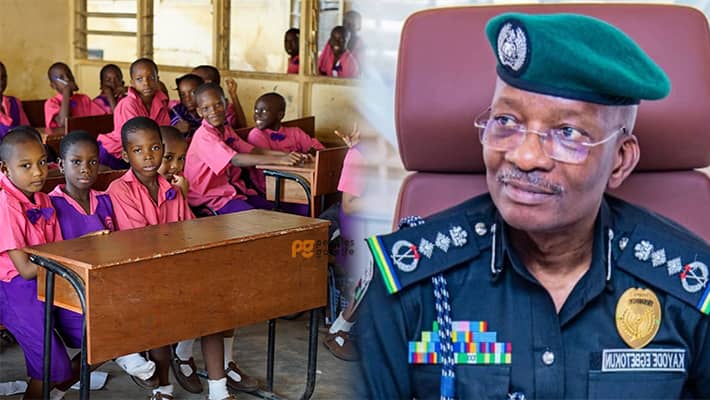- Egbetokun said the training was designed to equip state coordinators and DPOs nationwide with comprehensive knowledge and strategies on national plans for the safe school initiative.
- The police chief urged the participants to embrace the training with utmost seriousness, adding that the knowledge and skills to be acquired would directly impact the quality of services to be rendered.
Kayode Egbetokun, inspector-general of police, says the police will continue to give priority to the safety and security of schools nationwide.
NAN reports that Egbetokun said this at the inauguration of a training on safe schools for state coordinators and divisional police officers (DPOs) in Abuja.
The IGP stated that the event was designed to equip state coordinators and DPOs with knowledge and strategies on the safe schools initiative.
Egbetokun emphasised training participants’ importance for service quality and cooperation between law enforcement and stakeholders to ensure a safer learning environment and maximise Nigeria police resources.
“We are committed to implementing measures and utilising our resources to diminish the threats facing students, staff and educational facilities across the country,” he said.
“The current police administration has established the special intervention squad to swiftly address and counteract criminal activities nationwide.
“This squad will operate in support of the school protection squad to ensure that the country’s educational facilities remain free from danger and unwelcomed incidents.”
He said the police would continue to work harmoniously with relevant security agencies and stakeholders, including host communities, to confront those attacking schools.
Halima Iliya, the national coordinator for financing safe schools highlighted the ongoing crisis in Nigeria’s education system, particularly the issue of school kidnapping, which has led to a significant out-of-school population and called for a sustainable funding framework to tackle these issues.
Iliya emphasised the challenge of achieving safe schools in the country due to the lack of funding mechanisms from federal and subnational governments’ budgetary allocations.
